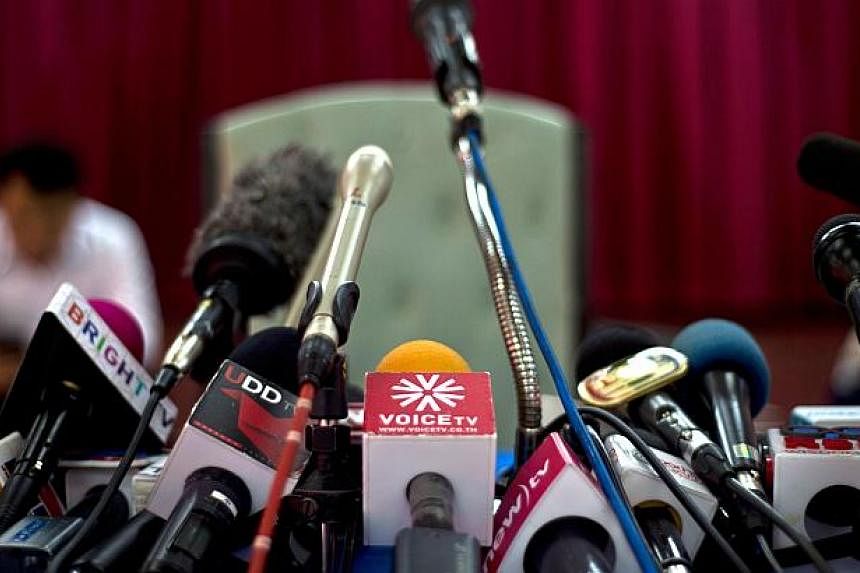Thai television stations are used to the drill during military coups: Play down political discussion, produce more news about crime or entertainment, and tread very carefully about any comment on the junta.
The censorship, which consolidates military control after each government ouster, is policed in the early stages by soldiers sitting in TV station control rooms. Gradually, the grip is loosened.
On July 18 though, nearly two months after Thailand's latest coup, the junta raised eyebrows by further tightening already ominous restrictions on all kinds of media.
Order number 97 banned criticism of the junta, its people and its work, and threatened to suspend any outlet that did so. It prohibited interviews with academics and former state officials that would "cause confusion".
Media outlets were "requested" not to present news which threatened stability or contained state secrets. Individuals using social media were subject to the same prohibitions.
The order had come on the same day deposed premier Yingluck Shinawatra gave a rare press conference, questioning the fairness of procedures with which the national anti-graft body had judged her negligent over a controversial state rice subsidy scheme.
That night, shortly before the order was announced, junta chief Prayuth Chan-ocha asked critics to be "open-minded" during his weekly address on national TV.
"For those who disagree, please do not oppose just yet," he said.
The National Council for Peace and Order, as the junta calls itself, promises to install an interim civilian government by September. General Prayuth is due to retire as army chief at around that time and widely tipped to assume premiership.
The catch-all nature of the July 18 censorship order prompted wry jokes among local journalists comparing Bangkok to Pyongyang.
After all, the media was already operating in a climate of fear. The junta had summoned and temporarily detained hundreds of individuals - many deemed close to the deposed government or seen to be anti-monarchy - after the May 22 coup. It also closely monitors negative coverage.
"We try to present both sides of a story, but it's not easy," says the news editor of a major TV station, speaking on condition of anonymity. "The commentators are sometimes afraid, especially to comment on NCPO activity."
Some reporters resort to creative ways to report both positive and critical opinions.
"When I interview a source, I now write his views as my own. I assume responsibility for it," says a senior Thai journalist. "Because, if you speak, you have to speak the truth."
The July 18 order elicited strong criticism from both within Thailand and abroad.
The executive director of the Southeast Asian Press Alliance, Ms Gayathri Venkiteswaran questioned how the junta might successfully enact reforms by gagging debate about its shortfalls.
"It completely disables any meaningful discussion," she said. "Even if the reforms are in the right direction, you cannot sustain it if the public is not involved."
On Monday, representatives of the Thai media met NCPO officials to ask for restrictions to be eased.
A few hours later, the NCPO issued an order amending the controversial one: Only ill-intentioned criticism would be banned, and it would let media organisations investigate infringements.
It left, at least, some wiggle room for journalists to do their jobs.


